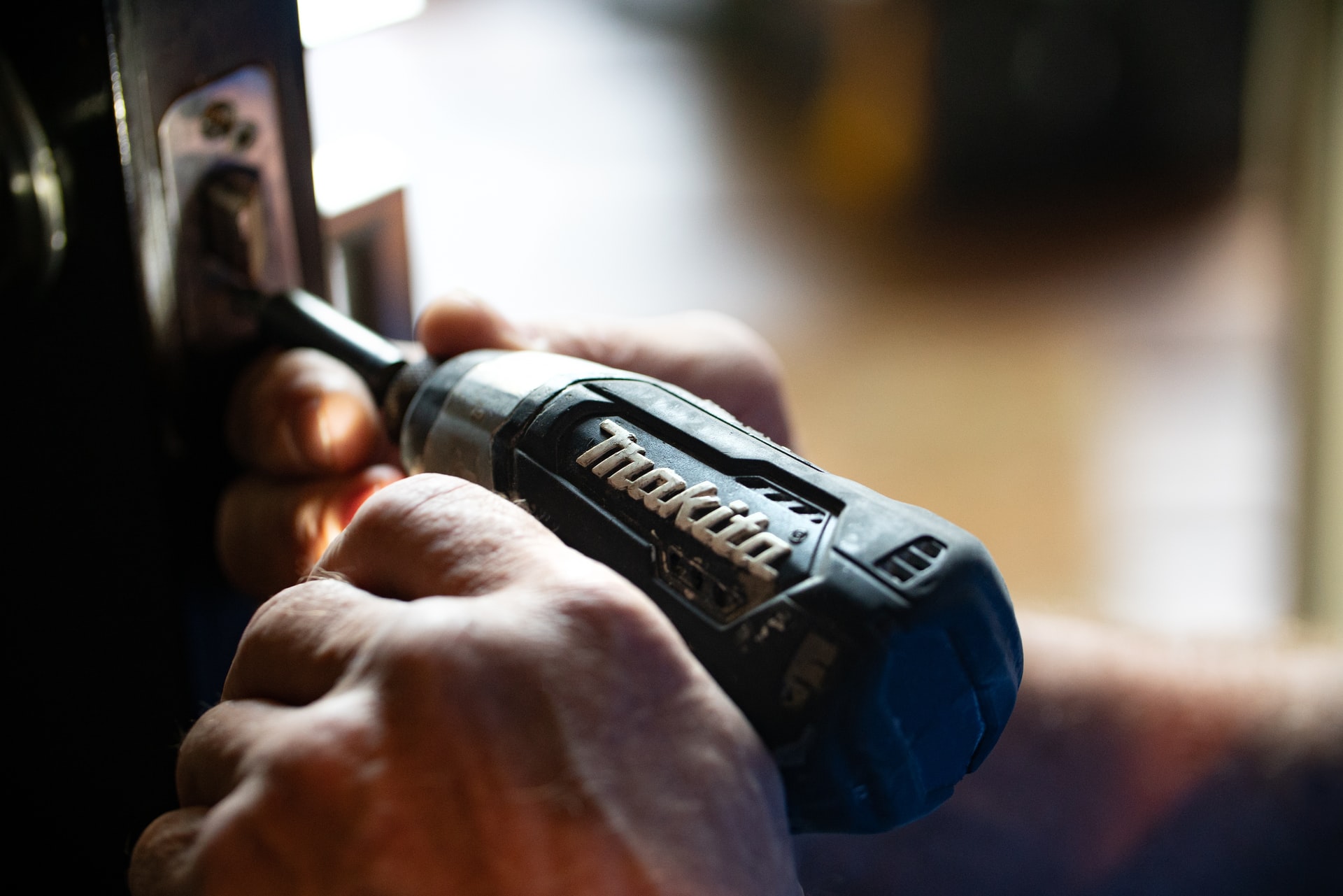House flipping can provide you with some side income and even replace your job, but how do you determine if your market works for flipping? As you understand flipping and look into what features contribute to good flip houses, you can build your track record and confidently invest.
Let’s look more closely at the nature of house flipping, when the market is right for it to be profitable, and the risks involved.
Understanding House Flipping
There are three key steps involved in successfully flipping houses:
- Purchasing at a low price: Some reasons people sell at a lower price include mortgage issues, needing to move quickly, or having run-down or older homes that need repair before reselling.
- Updating and repairing the house: Updating and repairing the house is often the key to increasing the home’s value.
- Making a profit: Once you’ve increased the home’s value, you can sell it or rent it out for a profit.
Determining If Your Market Works for House Flipping
House flipping has become less profitable over the past few years, with the average return on investment (ROI) shrinking to only 31%. However, ROI is different in every state, so it’s good to know your market.
Just because you find a cheap house to buy and flip doesn’t necessarily mean you can sell it easily or make a good profit. Before you invest in a property, you should understand what makes a market work for house flipping.
See If You Have a Buyer’s or Seller’s Market
At different times, the housing market will favor buyers, while at other times, it will favor sellers. In general, you want to buy homes when it’s a buyer’s market, and sell homes when it’s a seller’s market.
Let’s look at the three types of markets you might encounter:
- Buyer’s market: When it’s a buyer’s market, more homes are available than there is demand for homes. Thus, homes cost less, so you don’t need to invest as much in the initial home purchase.
- Seller’s market: When it’s a seller’s market, there are more buyers than homes available, so the available homes are in high demand. Thus, you can charge more and make more profits quickly.
- Balanced market: In a balanced market, there are enough homes that buyers can make reasonable offers, and sellers usually accept them. Home purchases happen at a reasonable pace and price.
The housing market doesn’t stay at the same prices throughout the year and will either increase or drop in value. If you’re lucky, you live in a place where the housing market fluctuates seasonally so that you can buy in a buyer’s market and sell in a seller’s market.
For example, if you invest in real estate in a college town, houses may be cheaper to purchase at the end of spring when students graduate and professors move to new jobs. You can get updates and repairs done quickly and then sell the house a couple of months later at a profit to incoming professors and families for the fall semester.
Ultimately, determining whether it’s a buyer’s or seller’s market and buying and selling in rhythm will be key to your flipping success.
Understand How Often Homes Sell
Before making an investment, you need to understand how often homes sell in the area.
If you find a house in an area where nobody wants to live, you may not be able to sell it for months or even years. On the other hand, if you choose a house to flip within a highly-desirable area, you may even have people making offers far above your asking price.
You can find out how quickly the market moves in an area by examining records on real estate purchase and rental websites. Some sites even offer home value and sales data that you can analyze to make your decisions.
Beyond historical prices in the area, it’s a good idea to look at how long houses in the neighborhood are on the market and at what time of the year they usually sell.
Understand the Area’s Growth Potential
If the population is growing and the job market is growing, an area is in more demand and will have more potential buyers.
You can learn how much a city has grown by comparing population change between 2010 and 2020 from the US Census website. If a city has seen a decline in population, it’s likely not a good place to invest.
New suburbs are often good places to invest, too. If businesses are popping up everywhere and the schools are constantly adding on to accommodate all the growth, it’s a good indication that it’s a good place to invest.
Of course, in high-demand areas, it can also cost more to acquire a house, so finding bargain fixer-uppers is key.
Find Out If Labor Costs Are Reasonable
Factoring in labor costs for updates and repairs is essential to understanding how much profit you can make. The cheaper it is to hire quality labor, the less the renovations will cost and the more profits you will make.
Unfortunately, with a shortage of workers, labor costs have increased over the past few years. However, if you can find a smaller, family-owned and operated business to do the work, their prices may not have changed as drastically as in larger companies that are short on labor.
Find Out If Materials Costs Are Reasonable Or If They’re Available
Supply chain problems have drastically increased the cost and availability of some materials necessary for home renovations and repairs.
Shortages you’re likely to encounter during repairs and home updates include:
- Lumber
- Oriented strand board
- Appliances
- Cabinetry
- Electrical transformer equipment
- Garage doors
Thus, you will want to keep a watch on the cost of lumber and other materials that are in short supply.
You will also want to look at potential home purchases through the lens of whether the repairs you will need to make are possible or profitable based on current material costs and availability.
Consider Buying Houses at Auctions
Banks often hold public auctions to sell their foreclosed properties at low prices.
Since the previous owner was forced to vacate for financial reasons, most of these homes need updates and repairs before they’re ready to sell. Sometimes, you can get lucky and end up with a home that doesn’t need a lot of repair work, which can greatly improve your profit margin.
It’s best to stick with auctions that allow you to inspect the property before bidding. Otherwise, you can end up with an expensive surprise like a termite infestation that can eat up your profits.
It’s also a good idea to do your homework ahead of time and learn what people normally pay for homes in the area to avoid losing money.
Find Out About the House’s Reputation
Something else to consider is the history of the home. If the home has been for sale for a long time, sometimes it’s because it has a grizzly past and nobody wants to touch it.
If the home went on the market after a violent crime or a meth lab bust, you may not be able to sell it as easily because of its reputation.
In a smaller community or town, a home’s past will be more difficult to overcome than in a larger city. You may even want to knock on the neighbor’s door and ask why an otherwise nice house has sat empty for so long.
Know Local House Flipping Laws
Before undertaking a house flipping project, it’s essential to know the local and federal laws about house flipping.
Illegal property flippers make minimal or no changes to a home before selling it at inflated prices through con schemes. Since it has become a problem in some areas, it has led to specific regulations that house flippers must follow.
For example, your area may have specific laws that limit how much property you can purchase and sell within a specific time. You may need to follow specific regulations and meet local standards before selling it.
If you don’t understand the local laws related to house flipping, you can work with a real estate agent or attorney for use.
Know the Risks
Even if you think your market works for house flipping, you must understand the risks associated with the process:
- It’s difficult to predict when it will be a seller’s market
- Demand may change
- The economy could change
- You may end up spending more on repairs and updates than expected
- You may not be able to sell it at the price you envisioned
- The money you invest may not result in profits for months or years if you can’t sell the home quickly
Because of these risks, it’s essential that you don’t rely on house flipping as your only source of income when you first start.
Closing Comments
Whether the housing market works for flipping houses depends on several factors. So, it’s vital that you research a house and the area, especially if you’re a beginner house flipper.
If the area and the home tick all the boxes for being a great choice for investment, then you can feel more confident that it’s a less risky investment. Most markets aren’t going to be perfect, but as long as you make well-informed decisions, you’re likely to end up with a good profit on your house flip investment.



